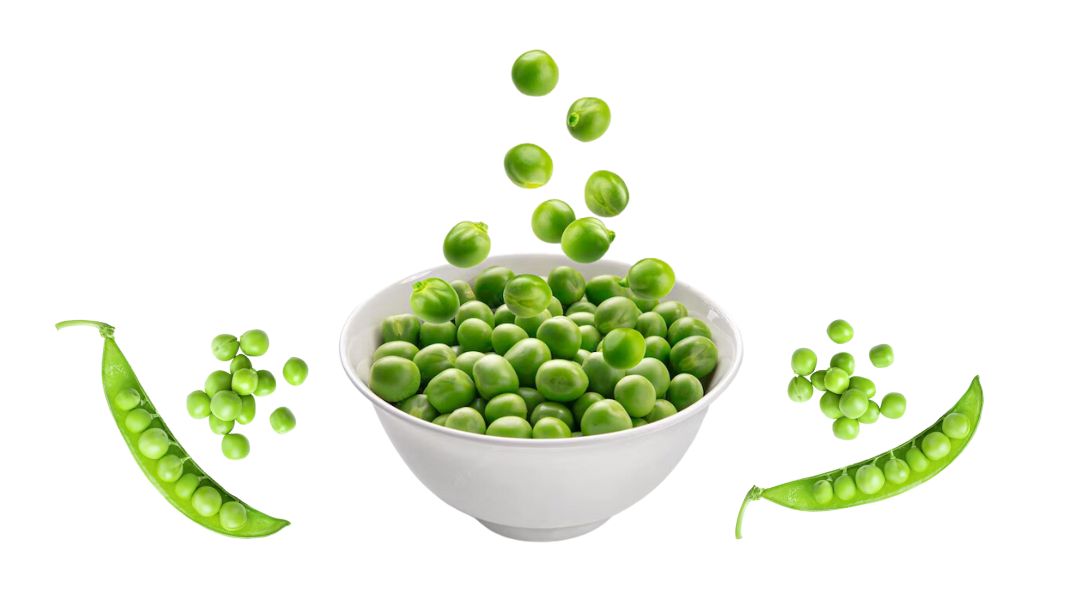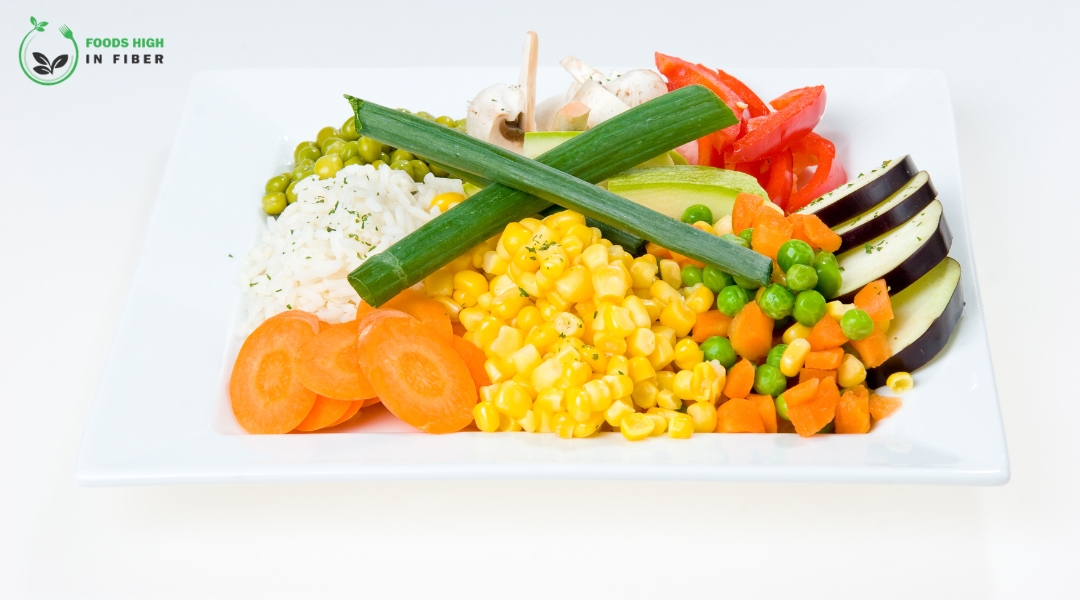Introduction of Man Made Fruits and Vegetables
Man made fruits and vegetables, also known as genetically modified organisms (GMOs), are products of advanced biotechnology techniques. Scientists modify the DNA of these plants enhance specific traits, such as increased resistance to pests, extended shelf life, or improved nutritional content. GMOs have been developed address challenges in agriculture, like food scarcity and environmental stress.
The process involves inserting genes from one organism into the DNA of another, granting them desired characteristics. This genetic modification can lead more abundant harvests and reduced use of pesticides, benefiting farmers and consumers alike.
While GMOs offer potential benefits, they have sparked debates regarding their safety, impact on ecosystems, and labeling requirements. Understanding these issues is essential for making informed choices about our food.
What is Man made of Fruits and Vegetables?
Fruits and vegetables are essential foods made by nature and are packed with nutrients. They are abundant in vitamins, minerals, dietary fiber, and antioxidants. Humans are encouraged to eat them regularly for a healthy lifestyle. Fruits like apples, oranges, and bananas offer vitamins A and C, while vegetables like spinach and carrots provide vitamin K and beta carotene. Including these colorful foods in your diet can boost immunity, promote digestion, and support overall well-being.

Why Are Man Made Vegetables and Fruits Invented?
Man made vegetables and fruits, also known as genetically modified organisms (GMOs), were invented to address various agricultural challenges. Scientists genetically modify these crops to enhance their characteristics, such as resistance to pests, diseases, and harsh environmental conditions. GMOs also aim to increase crop yields, improve nutritional content, and extend shelf life. The goal is to ensure a more reliable food supply, reduce the use of harmful pesticides, and combat hunger and malnutrition worldwide.
Is there any health risk in eating Man Made Vegetables and Fruits?
Man made vegetables and fruits, often referred to as genetically modified organisms (GMOs), have been a subject of debate regarding their safety. Currently, extensive research shows that approved GMOs are safe to eat. Health risks associated with GMOs are rare, and they undergo rigorous testing before being sold to consumers. However, following regulations and labeling practices must ensure transparency and informed choices. Always seek guidance from medical professionals for customized recommendations.
Advantages of Man Made Vegetables and Fruits
These are the advantages of man made vegetables and fruits:
Consistent Quality: Man made vegetables and fruits are produced under controlled conditions, ensuring consistent quality and taste. They are less likely to be affected by weather, pests, or soil variations, resulting in reliable and uniform produce.
Longer Shelf Life: These artificially grown crops can be designed to have a longer shelf life, reducing food waste and allowing for better distribution and storage.
Enhanced Nutrition: Scientists can modify man made crops to increase their nutritional value, such as boosting essential vitamins, minerals, and antioxidants, leading to healthier food options.
Year Round Availability: With controlled indoor environments, man made vegetables and fruits can be grown all year round, overcoming seasonal limitations and ensuring a steady supply of fresh produce.
Reduced Environmental Impact: By cultivating crops indoors, the need for vast farmland is reduced, which can help conserve natural habitats and decrease the use of pesticides and herbicides.
Disease Resistance: Genetic engineering can make man made crops more resilient to diseases and pests, reducing the reliance on chemical treatments and contributing to sustainable agriculture.
Allergen Free Options: Scientists can develop allergen free varieties of certain fruits and vegetables, making them safer for individuals with food allergies.
Tailored Flavors: Through genetic modification, man made crops can be designed to have specific flavors, appealing to different taste preferences and encouraging healthy eating habits.
Boosting Food Security: Man made crops can be grown in regions where traditional agriculture is challenging, improving food security in areas with limited arable land or adverse climatic conditions.
Research and Innovation: The development of man made vegetables and fruits encourages research and innovation in agriculture and biotechnology, leading to advancements in food production and sustainability.
Remember, while man made fruits and vegetables offer several advantages, it’s essential to ensure that they are developed and regulated responsibly to address any potential safety and environmental impact concerns.
13 Man made Fruits and Vegetables for 2023
These are 13 man made fruits and vegetables in simple and easy words:
Broccoli
Broccoli is a green vegetable that looks like a small tree. It’s healthy and delicious! Packed with vitamins and fiber, it helps keep our bodies strong and our tummies happy. Just steam or boil it for a few minutes, and it’s ready to eat. Yummy and nutritious!
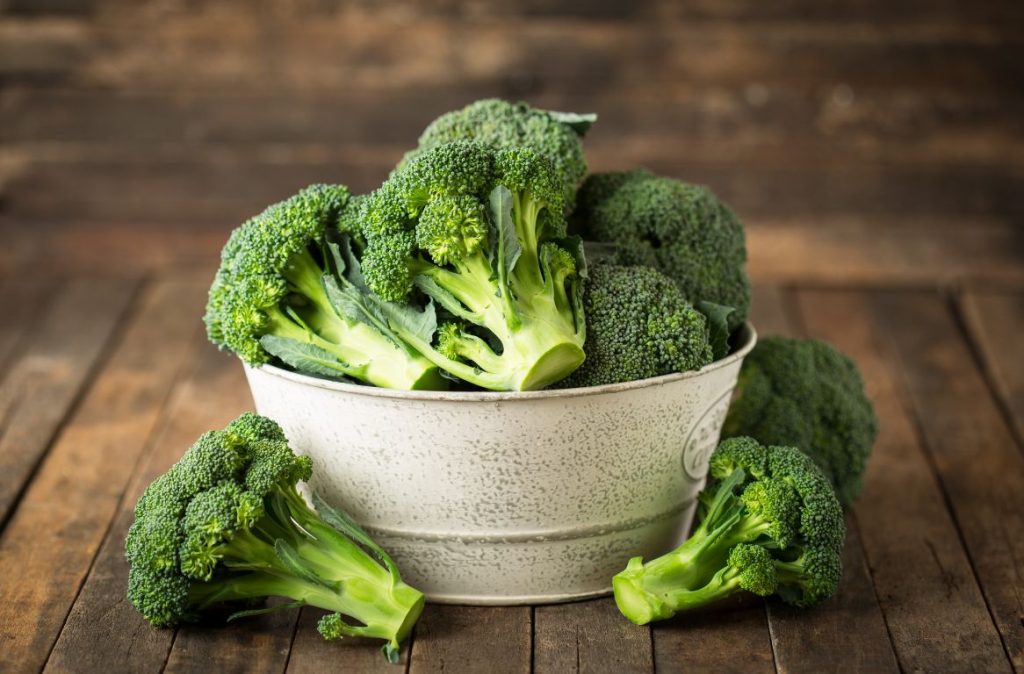
Carrots
Carrots are orange vegetables with a sweet taste. They grow underground and have a crunchy texture. Carrots are rich in vitamins, especially vitamin A, which is good for eyesight. They are commonly used in salads, soups, and as snacks. Eating carrots helps keep you healthy and your eyesight sharp.
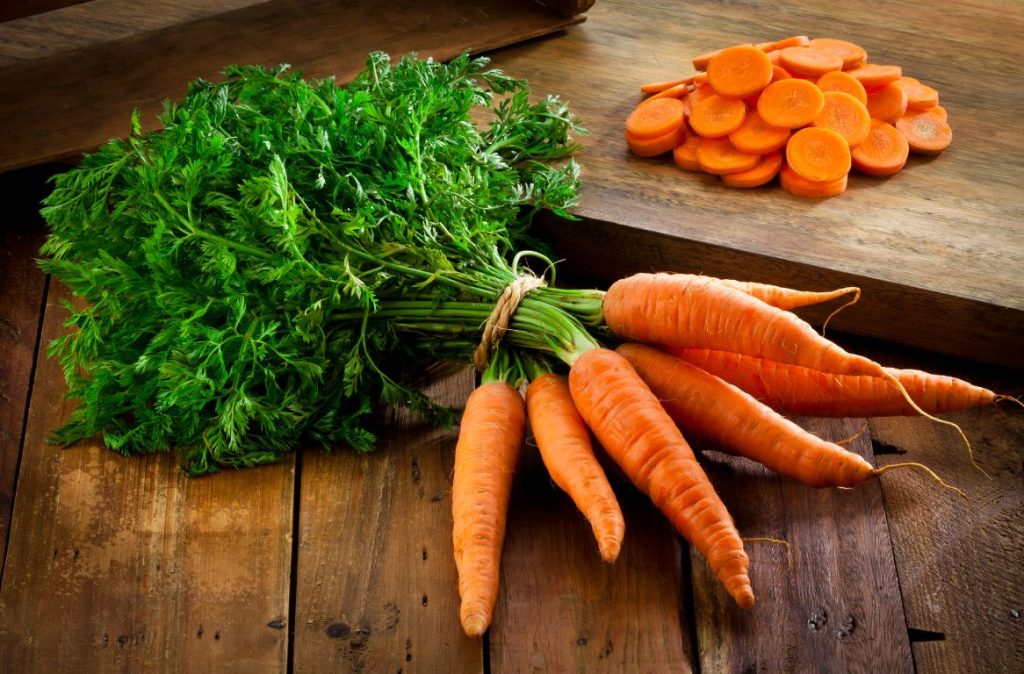
Corn
Corn is a tall, yellow grain plant grown worldwide. It is a popular food crop with juicy, sweet kernels on cobs. People eat corn as popcorn, corn on the cob, or cornmeal. It’s used in various dishes like tortillas, chips, and cereals. Corn is also fed to animals and used for making biofuels.
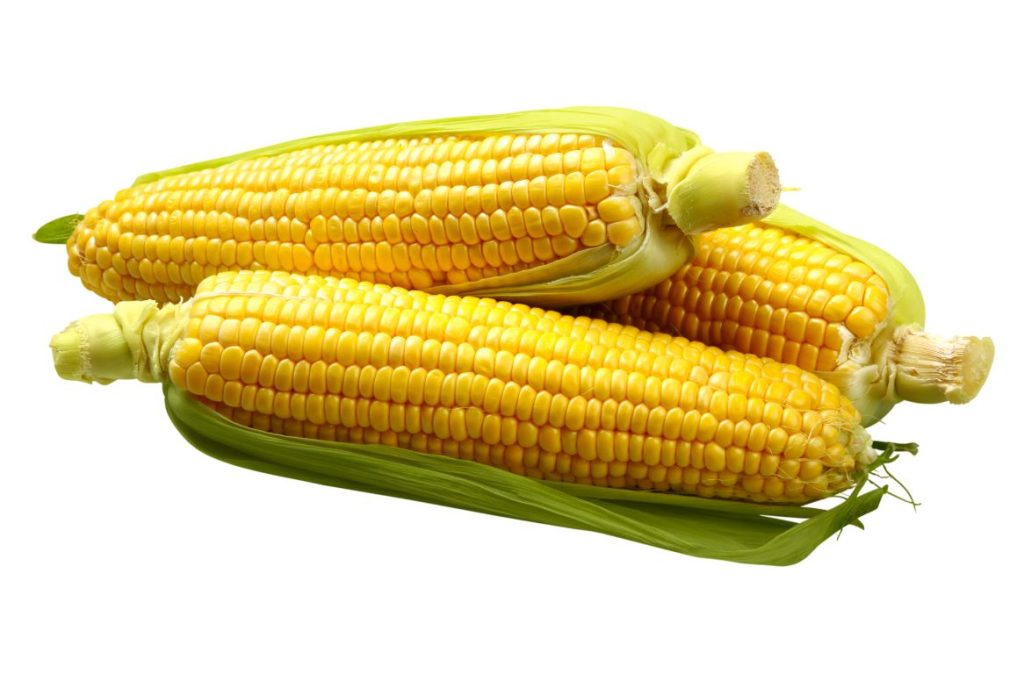
Eggplant
Eggplant, also known as aubergine, is a delicious and versatile vegetable. It has smooth, shiny, purple skin and soft, creamy flesh. When cooked, it becomes tender and absorbs flavors well. Eggplant is commonly used in various dishes like curries, stir fries, and bakes, adding a unique taste to meals.
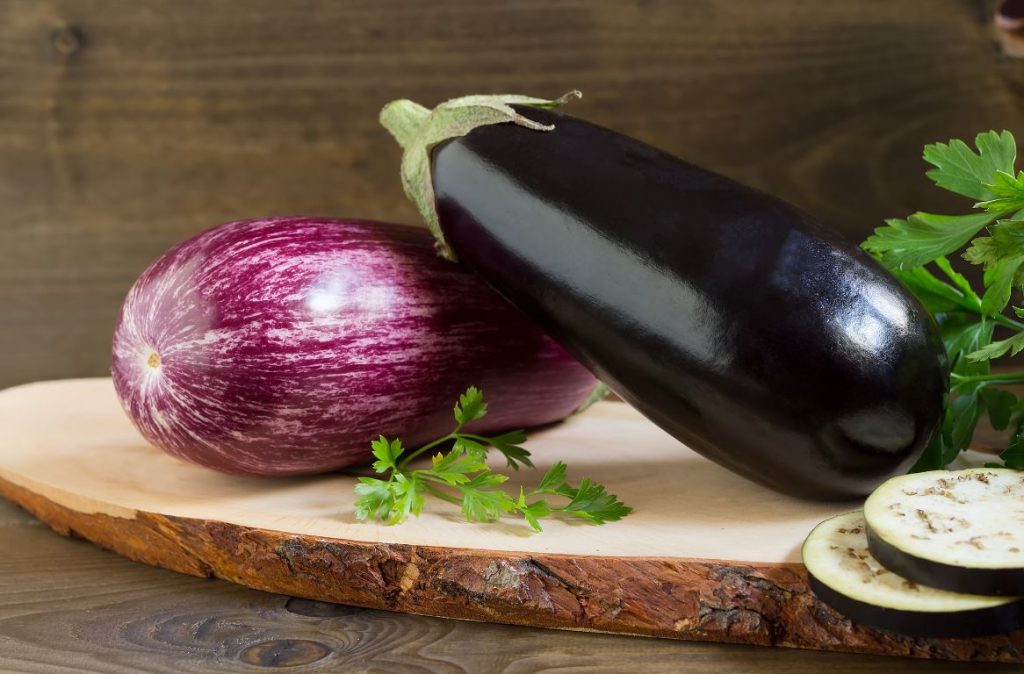
Grapes
Grapes are juicy, small fruits that grow in clusters on vines. They come in various colors, like green, red, and purple. Grapes are loved for their sweet taste and are used to make delicious treats like raisins and grape juice. They are packed with vitamins and antioxidants, making them a healthy snack.
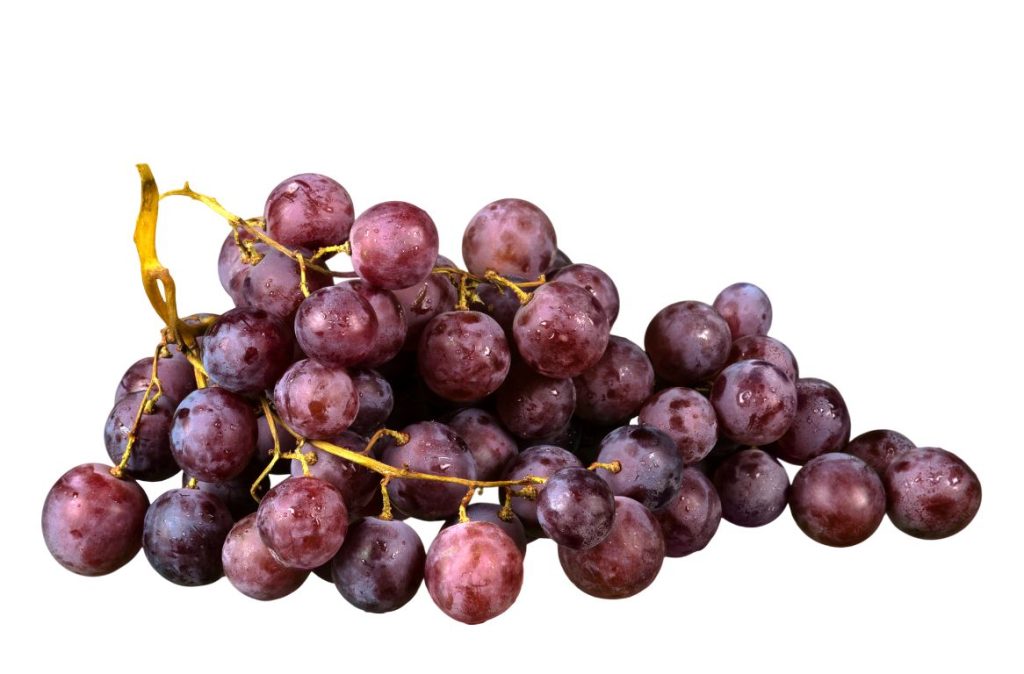
Oranges
Oranges are juicy fruits that belong to the citrus family. They are round and typically orange in color. Oranges are rich in vitamin C, which helps boost the immune system. They taste sweet and tangy, making them famous for snacks and juices worldwide.
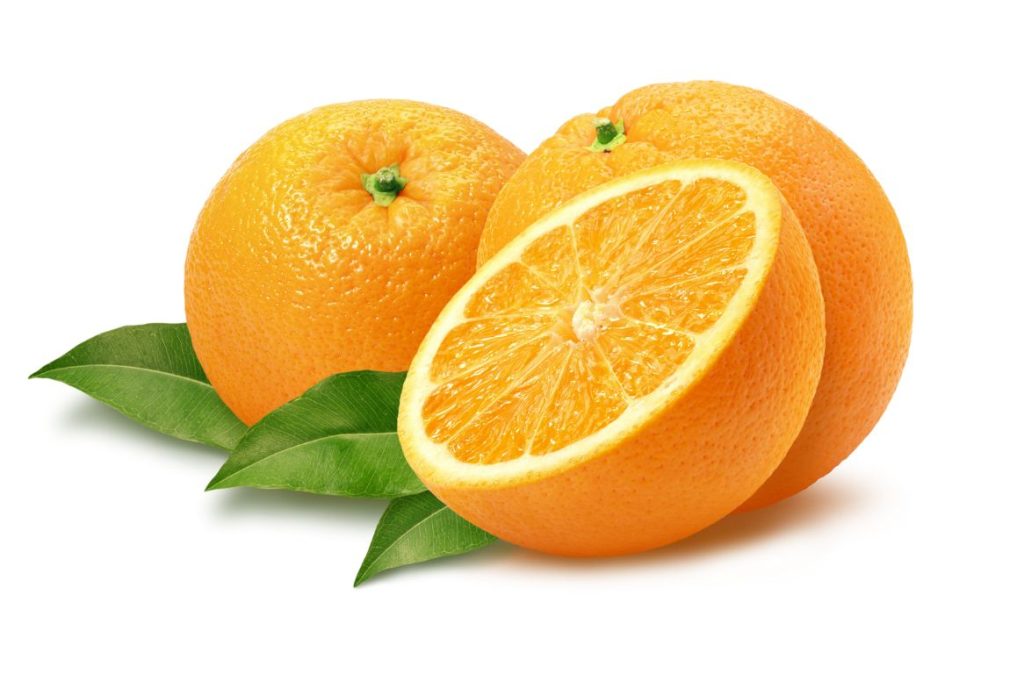
Potatoes
Potatoes are versatile and popular vegetables grown worldwide. They come in various shapes and sizes, with brown, red, or yellow skin. Potatoes are rich in vitamins, minerals, and fiber. They can be boiled, mashed, fried, or baked, making them a favorite in French fries, mashed potatoes, and potato chips.
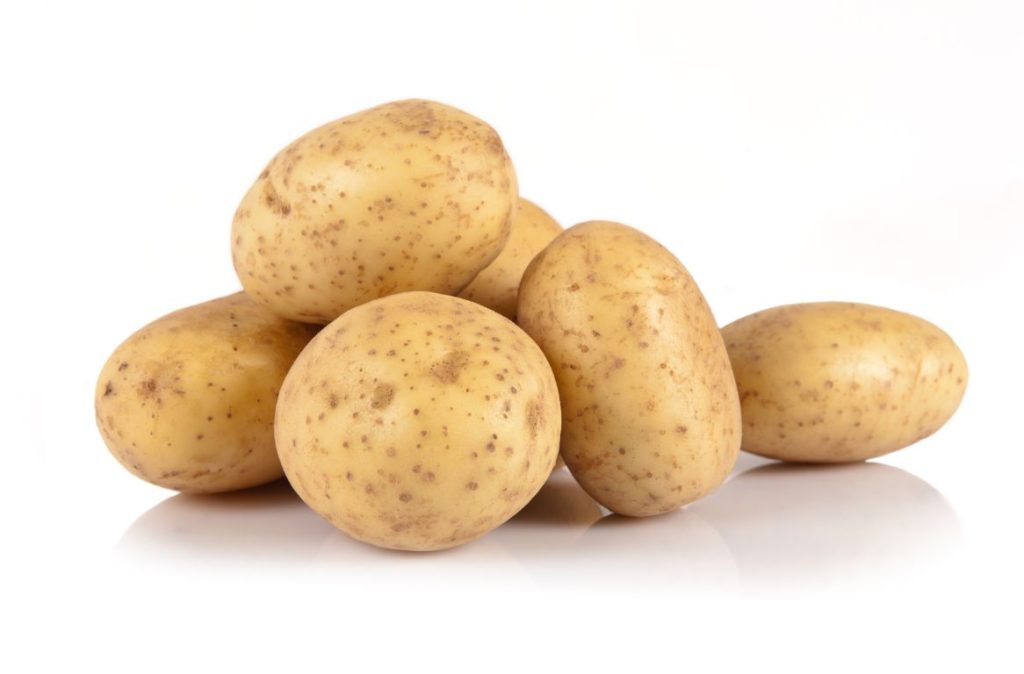
Spinach
Spinach is a leafy green vegetable that’s good for our health. It’s packed with nutrients like vitamins A, C, and K, iron, and calcium. Spinach can help strengthen our bones, improve our eyesight, and boost our immunity. It’s yummy in salads, smoothies, and cooked dishes!
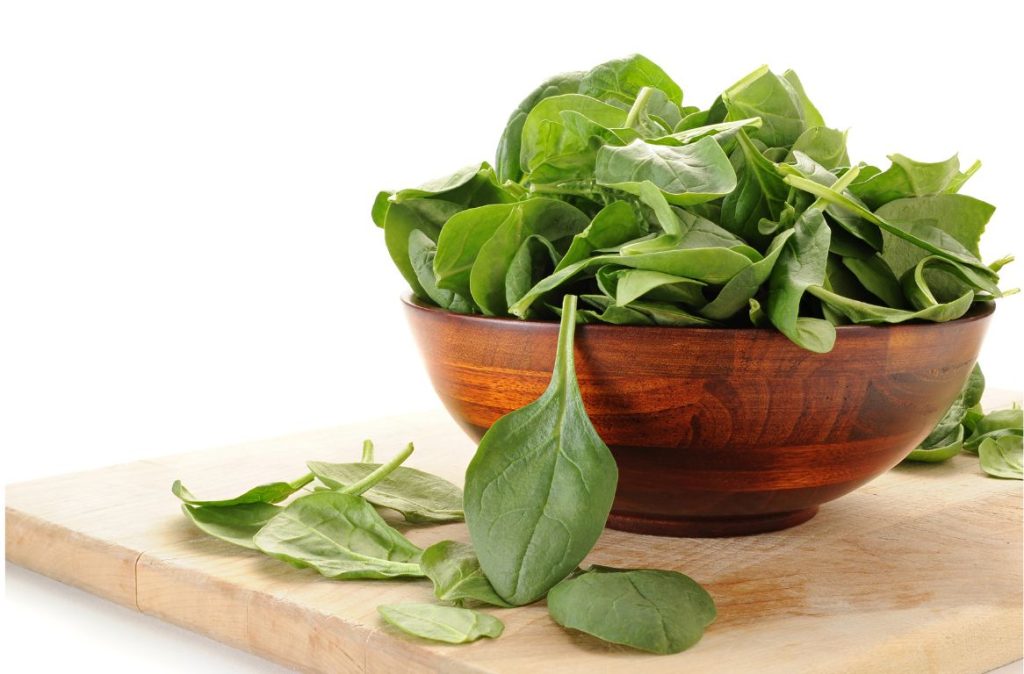
Strawberries
Strawberries are delicious and juicy red fruits that grow on small plants. They have tiny seeds and a sweet, tangy taste on their outer skin. Strawberries are packed with vitamins, like vitamin C, and are a healthy snack. They can be eaten fresh, added desserts, or used to make yummy smoothies!
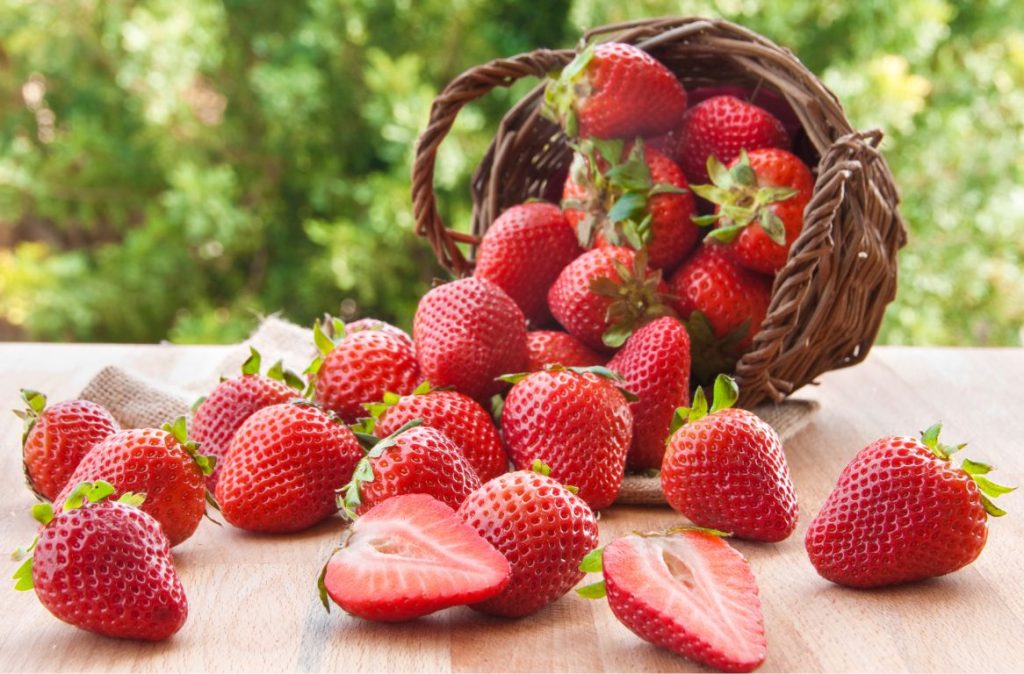
Sweet potatoes
Sweet potatoes are nutritious root vegetables with a sweet taste. They have a rich orange color and are packed with vitamins, like A and C, and minerals. These veggies are easy to cook and can be boiled, baked, or mashed. They make delicious fries and pies. Enjoy their goodness in various dishes!
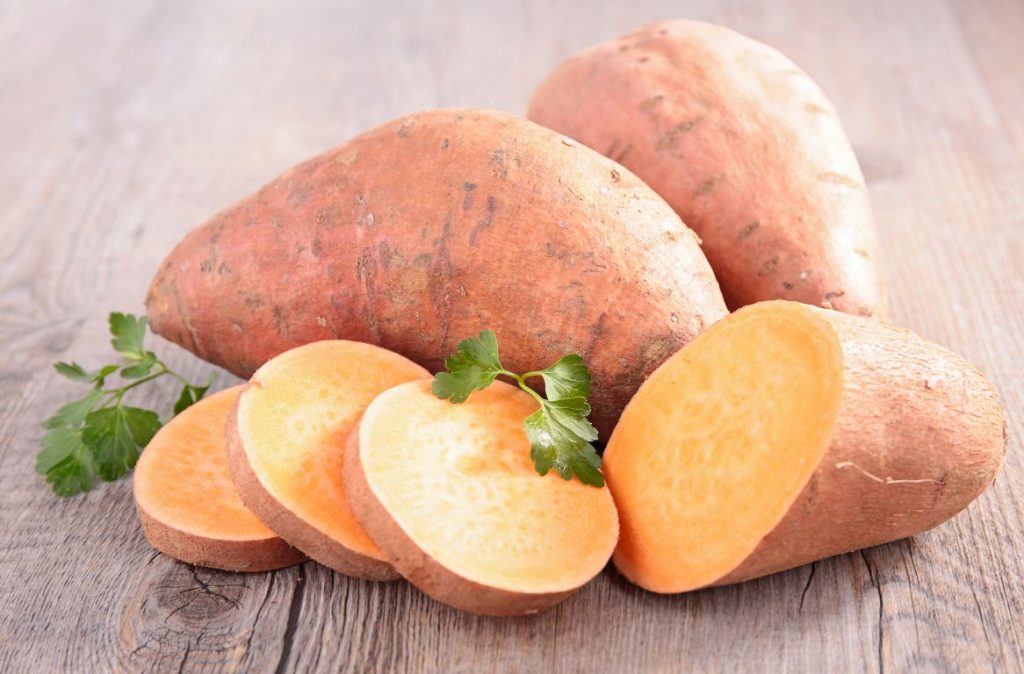
Tomatoes
Tomatoes are delicious and versatile fruits, often mistaken for vegetables. They come in different colors, like red, yellow, and green. Tomatoes are packed with nutrients like vitamin C, potassium, and antioxidants. They are used in salads, sauces, soups, and many dishes worldwide. Easy to grow, they need sunlight and regular watering. Enjoy their juicy flavor!
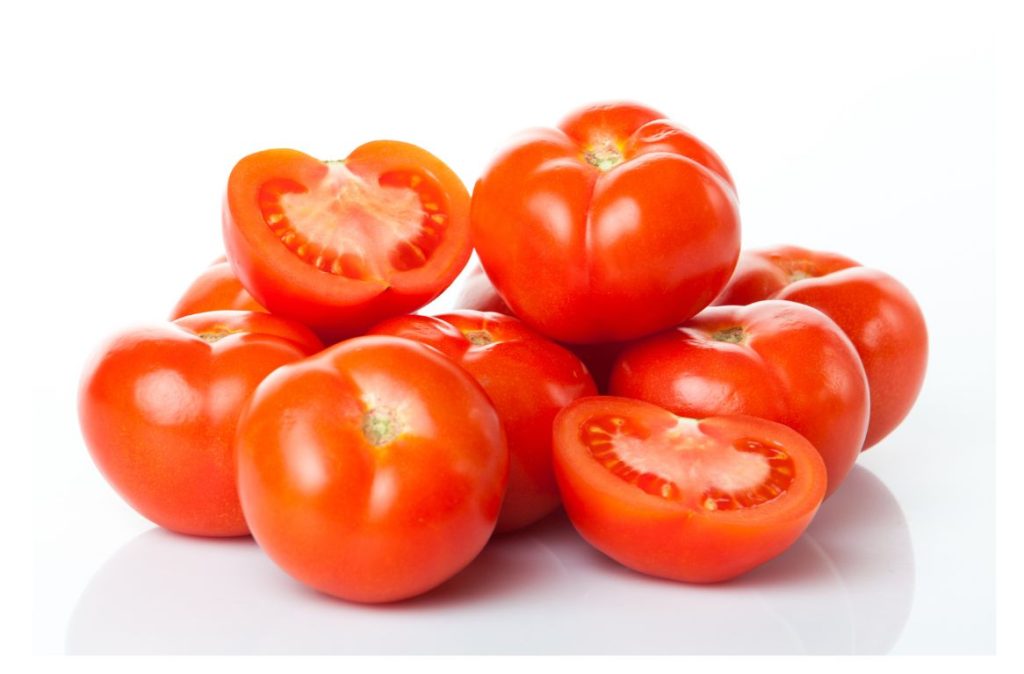
Watermelon
Watermelon is a juicy and refreshing fruit loved by many. It’s large, with green rind and sweet pink or red flesh. Full of water, it helps quench thirst on hot days. It’s packed with vitamins like A and C and also contains antioxidants. Perfect for picnics and summer treats!
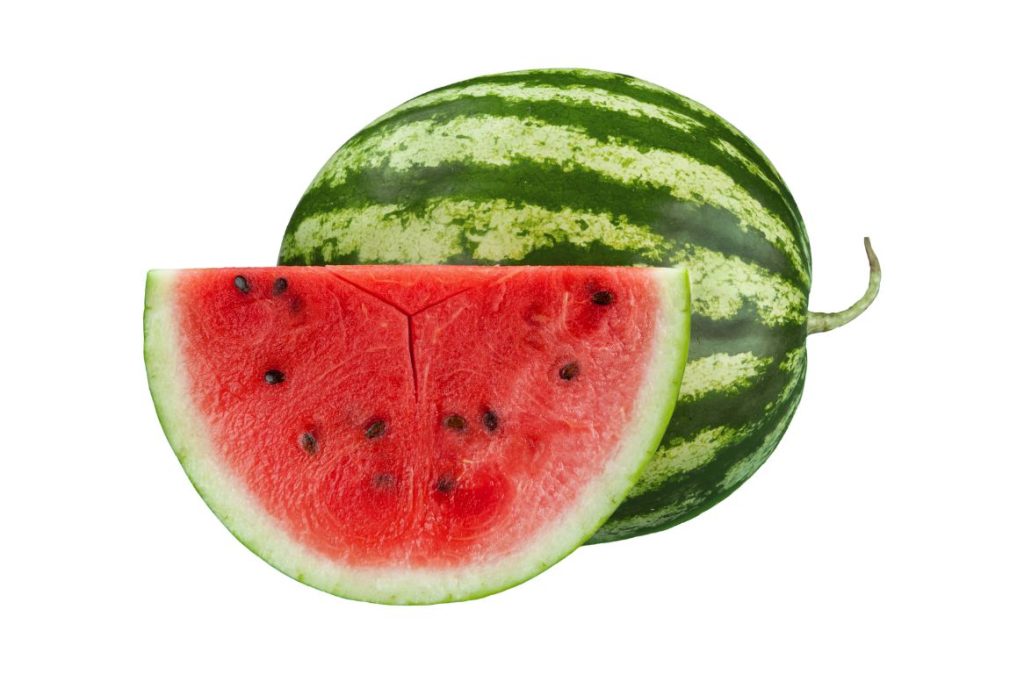
Wild cabbage
Wild cabbage, or Brassica oleracea, is a leafy green plant in nature. It is the ancestor of many common vegetables like broccoli, cauliflower, and kale. Wild cabbage grows in coastal regions and has dark green leaves. People have cultivated it for centuries for its tasty and nutritious qualities.
These are just a few of the many man made fruits and vegetables we enjoy today. Through selective breeding, humans have improved these crops’ taste, nutrition, and yield, making them an essential part of our diet.
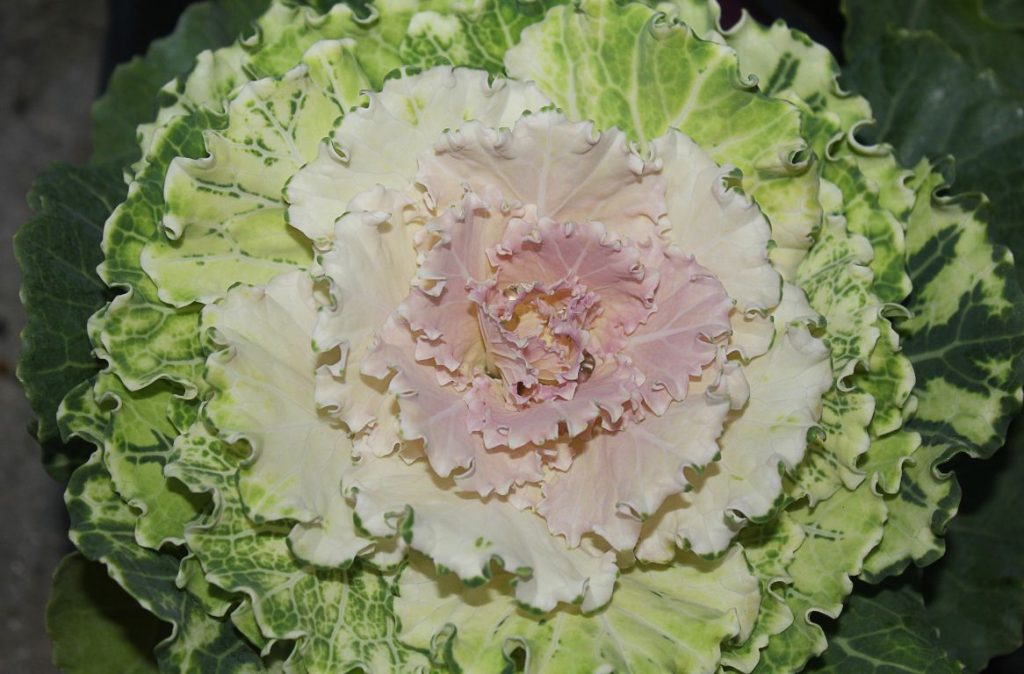
Conclusion
Man made fruits and vegetables are products artificially created or modified by humans through genetic engineering or other scientific processes. These fruits and vegetables are designed to possess specific traits, such as resistance pests or diseases, improved nutritional content, or longer shelf life.
While concept of man made produce raises ethical and environmental concerns, it has also opened up opportunities address food scarcity and enhance crop yields. As technology advances, it becomes crucial to carefully assess the potential benefits and risks associated with these creations. Striking a balance between innovation and responsibility will be critical the future of man made fruits and vegetables.


